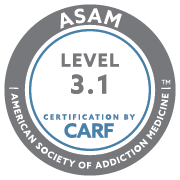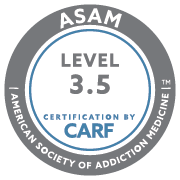The public has a very limited time to weigh in on the proposed changes the Department of Public Health and Human Services (DPHHS) has made to the Medicaid Services Provider Manual for substance use disorders. Rimrock wants to make sure our community is aware of these proposed changes and how they will affect those seeking treatment. The contact information to comment on this issue is included at the end of this blog post.
The overarching concern with the proposed changes made to the Provider Manual is that anyone with Medicaid seeking substance use treatment whether inpatient or outpatient, will no longer be allowed to have concurrent mental health treatment covered by Medicaid. Over 80% of the clients seeking treatment for a substance use disorder have a co-occurring illness and integrated treatment is the best practice in addiction treatment across the country.
“DPHHS has proposed a new Medicaid Services Provider Manual for substance use disorders,” Rimrock’s COO Coralee Schmitz said, addressing the concerns arising from the new Medicaid Services Provider Manual for those seeking help with addiction. “The overarching concern is that anyone with Medicaid seeking substance use treatment whether inpatient or outpatient, will no longer be allowed to have concurrent mental health treatment covered by Medicaid. Over 80% of the clients seeking treatment for a substance use disorder have a co-occurring illness and integrated treatment is the best practice in addiction treatment across the country. Disallowing Medicaid clients coverage for therapy such as, marriage and family therapy, trauma therapy, grief counseling or any other therapeutic intervention while also treating their addiction puts them at a disadvantage to achieving whole-person recovery. If mental illness and substance use disorders are not treated concurrently the risk of relapse increases, leading to an ongoing cycle of detox and treatment, creating further strain on the community and resources.”
If you are interested in commenting on this issue, please contact Gwen Knight, Department of Public Health and Human Services, Office of Legal Affairs, P.O. Box 4210, Helena, Montana, 59604-4210; fax (406) 444-9744; or e-mail dphhslegal@mt.gov. All comments must be received no later than 5:00 p.m., June 21, 2019.
Rimrock appreciates the support of our community and area providers who work with us to help people find lasting recovery. We will continue to deliver the best care for our clients and will strive to lessen the impact these proposed changes to Medicaid will have on our clients and our community.





